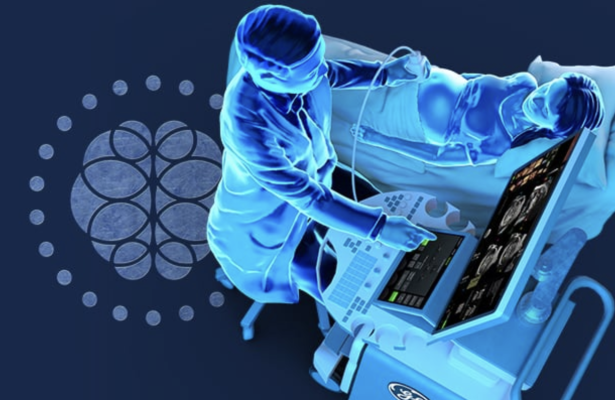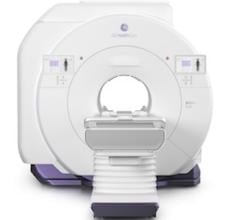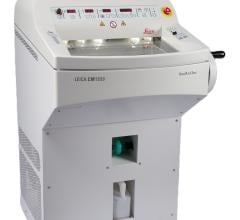
November 2, 2023 — GE HealthCare’s Artificial Intelligence (AI) models predict patient response to immunotherapies with 70 to 80 percent accuracy[1], based on a pan-cancer cohort, according to findings to be presented at the Society for Immunotherapy of Cancer (SITC) in San Diego, U.S., by GE HealthCare, Vanderbilt University Medical Center (VUMC) and the University Medicine Essen (UME), Germany. Originally developed based on a cohort of over 3,000 immunotherapy patients from VUMC and subsequently validated on a cohort of 4,000 patients from UME, the AI models predict efficacy outcomes and the likelihood of an individual patient developing an adverse reaction. This could enable precision care by unlocking the potential for clinicians to select the appropriate personalized treatment pathway sooner while potentially sparing unnecessary side effects and cost.
Immunotherapies use the immune system to recognize and attack cancer cells and can be more effective than traditional treatments, but response rates are often low and side effects can be severe.[2] In addition to the potential benefits of these AI models in clinical use, with roughly 5,000 immunotherapies in development today[3], selecting patients more likely to respond could also help drug developers to speed up and increase the likelihood of success of clinical trials. After regional regulatory approvals, GE HealthCare plans to commercialize the models for use both in pharmaceutical drug development and for clinical decision support.
To develop the AI models, GE HealthCare and VUMC retrospectively analyzed and correlated the immunotherapy treatment response of thousands of VUMC cancer patients, with their deidentified demographic, genomic, tumor, cellular, proteomic, and imaging data. The models presented at SITC use only routinely acquired data from the patient's electronic health record (EHR) as inputs, enabling versatility and scalability in their potential application.
“Immunotherapy can offer significant benefits for patients but given the current unpredictability of some reactions to treatment, it can also be associated with increased morbidity and cost. These results pave the way for the ability to better select which patients should benefit and which would be better suited to an alternative form of treatment,” said Travis Osterman, DO, MS, Associate Vice President for Research Informatics and Associate Chief Medical Information Officer for Vanderbilt University Medical Center, and Director of Cancer Clinical Informatics at Vanderbilt-Ingram Cancer Center.
"In our joint work, we have shown that the AI models are effective across both sides of the Atlantic, paving the way for real world applications that could offer significant benefits for cancer patients treated with immunotherapies." said Jens Kleesiek, MD, PhD, Head of the Medical Machine Learning Department at the Institute for AI in Medicine and Associate Director of the West German Cancer Center of the University Medicine Essen.
“These results are a promising development in the journey towards precision care, selecting treatment pathways based on the individual patient’s likely response. We are keen to partner with pharmaceutical companies, researchers, and clinicians to optimize and apply our AI models in therapy development and in clinical practice in a longer term,” said Julia Casey, General Manager Molecular Imaging at GE HealthCare’s Pharmaceutical Diagnostics segment.
The AI models are an integral part of GE HealthCare’s immuno-oncology development portfolio which includes the development of novel PET tracers. The company recently announced the first patient scanned in a Phase I clinical trial of a first-of-its kind fluorine-18 PET radiopharmaceutical specific for CD8. Almost all immunotherapies work by activating CD8+ T cells - a subpopulation of white blood cells which fight cancer - both within and outside a tumor.
GE HealthCare’s Pharmaceutical Diagnostics segment is a global leader in imaging agents used to support around 100 million procedures per year globally, equivalent to three patient procedures every second. Its Molecular Imaging portfolio combines established proprietary products across cardiology, neurology, and oncology, with an innovative pipeline, all aimed at enabling better-informed diagnosis and monitoring for improved therapy decision-making and clinical outcomes.
For more information: www.gehealthcare.com
Find more RSNA conference coverage here
References:
[1] Poster “Evaluation of Machine Learning Models to Predict Efficacy and Toxicity of Immune Checkpoint Inhibitors Using an External Real-World Pan-Cancer Cohort” to be presented at SITC 38th Annual meeting
[2]https://www.hopkinsmedicine.org/inhealth/about-us/immunotherapy-precision-medicine-action-policy-brief#:~:text=It%20doesn't%20work%20for,are%20about%2015%20to%2020%25. Accessed on October 31, 2023.
[3] Shankar L. et al. Harnessing imaging tools to guide immunotherapy trials: summary from the National Cancer Institute Cancer Imaging Steering Committee workshop. Lancet Oncology 2023; 24(3): e133-e143. doi: 10.1016/S1470-2045(22)00742-2


 February 20, 2026
February 20, 2026 









